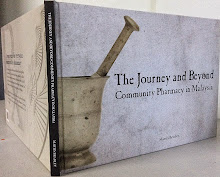
The Good Lieutenant
The all-pervasive storm’s last few water droplets drip through the jungle canopy. Like diminutive mirrors, they refract and reflect their surroundings, dispersing themselves through leaves and branches, brushing arboreal orchids and finally gracing the curvaceous pots of Malaya’s Nepenthes alata (pitcher plants).
The rain has ceased its thunderous downpour, and the jungle’s heat begins to offer up a beguiling mist, obscuring pathways and veiling traps for the unwary.
Birds again begin to sing - monkeys to cavort and the human occupants to go about their tasks and responsibilities.
The wet subsides - small insects embark on their multifarious tasks.
Ants locate sustenance and organise to carry their loads.
Bees and hornets seek nectar hustling too and fro, gathering and building for the collective good of their respective communities.
Below the verdant, labyrinthine, forests of 1950s tropical South East Asia, the humid noon-day sun beats down on banana leaves near a rural mine manager’s bungalow. This colonial structure now doubles as the neighbourhood anti-communist Federation of Malaya Police officer’s billet.
The 1930s red brick built, single storey unit, now houses both mine manager Ian Ogilvy, and the newly posted Police Lieutenant on anti-terrorist duties - Lieutenant Reginald Lyndon Gold.
Reggie Gold is the sixth police lieutenant billeted at the mine house since ‘The Emergency’ began, and Ian was getting a little battle weary having to adapt to each of the new temperaments. Though, the truth to be told, this latest chap seemed ok – a down-to-earth sort of bloke who took his job seriously and doted on his wife and children back in Blighty.
Across the world in the British motherland, it is November, 1951. Churchill’s second Conservative government has been in office a month. The long exhaustion of the Second World War had dissipated three years earlier, changing the known world beyond all recognition.
Families decimated by warfare are still struggling to hold their heads above a financial deluge. Men-folk ravaged by armed conflict have returned to the British Isles, no longer themselves.
Many never returned.
The British Empire has shrunken to the British Commonwealth, with previous colonies eager to disassociate themselves from the motherland.
One by one the adjunct countries seek independence through the political process, or other means.
Britain is recovering from rationing and shortages brought about by a war economy - trying to boost the general morale with the Festival of Britain - which finally closed its doors on the 30th September, 1951.
Overcrowding and air pollution plague London, urging central government to build new towns to dissipate a populace devastated by war-time aerial bombardment, and decreasing health due to the prolonged inhalation of coal smoke.
In Suffolk’s county town – Ipswich, the desiccated brown leaves continue to fall, easing its inhabitants from autumn into chilling winter.
Nights have become crisper and morning frosts sharper. Woollen winter coats are drawn over inner jackets, and boots have gradually replaced shoes. Days have become shorter as the nights lengthen. A longing for imaginary summer sun begins. Slowly, insipiently, the yearning for sunshine urges the populace to consider summer holidays, and where, when, they should satiate their growing lust for the sun.
In a red brick end terrace ‘two up two down’ house on the outskirts of Ipswich - Suffolk’s county town, Joan and her two boys sleep peaceful, though a little cold. The youngest, John, at seven months cannot really recall his father, while the eldest - two year old Mark is just old enough to begin missing his presence.
As they have no choice in the matter, they sleep oblivious of the dangers their father is exposed to daily.
A clear sky will usher in a frost later, leaving tiny white shards of ice decorating winter grass. In the morning Joan will go about her chores as she has done these last few years, and in those few odd moments of idleness fret over her missing husband.
In the cool morning Joan will listen to BBC Light Radio for news, this is her routine. In the front parlour the family’s dark brown bakelite wireless stands on a 1930’s wooden sideboard, bedecked with a lace runner. Next to it stands a slightly stained black and white photograph, in a thin, bevelled, wooden frame, of a smart young man in uniform. It is partially hidden by the last of the garden’s fresh russet chrysanthemums, gracing a clouding glass vase.










